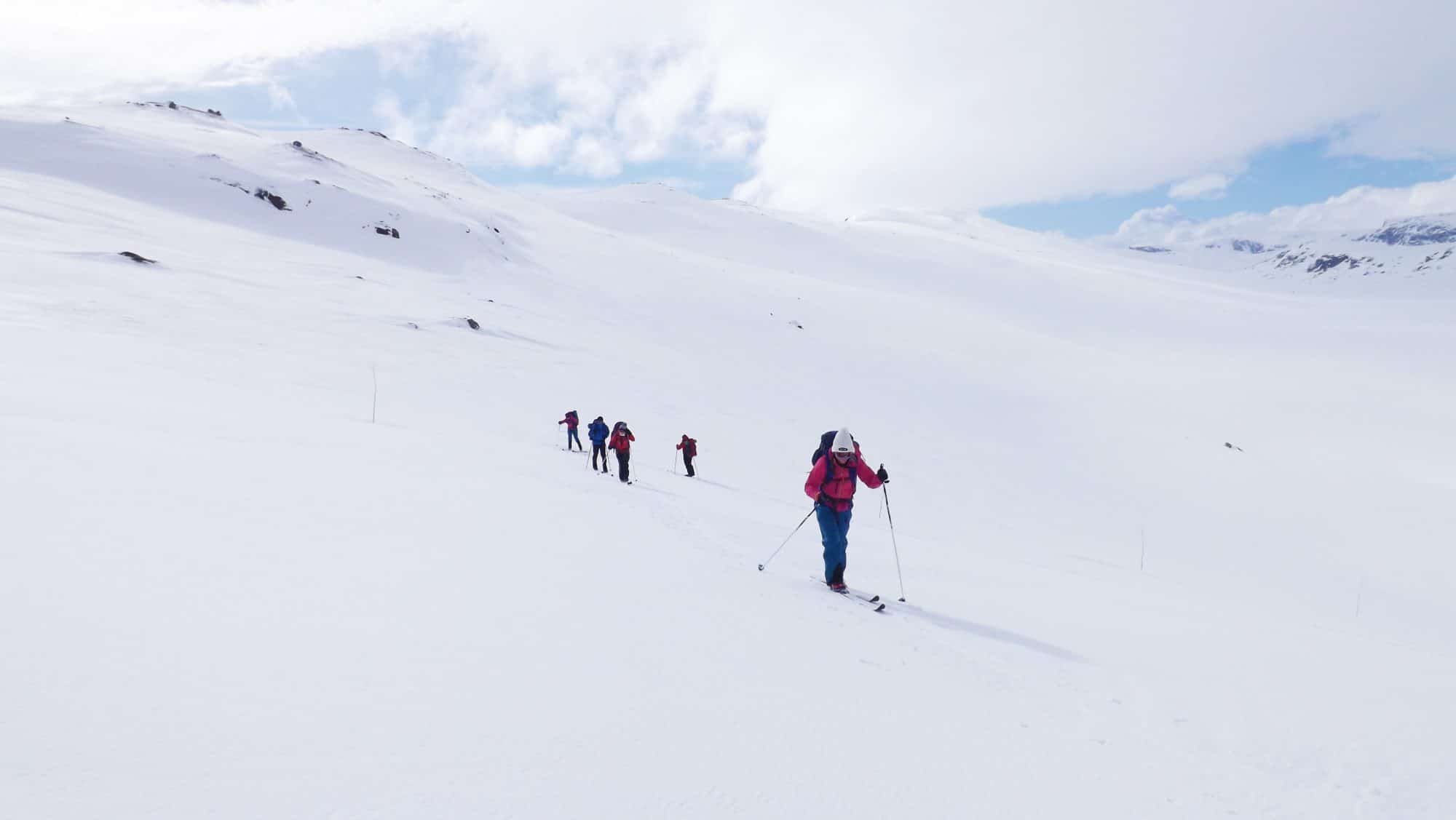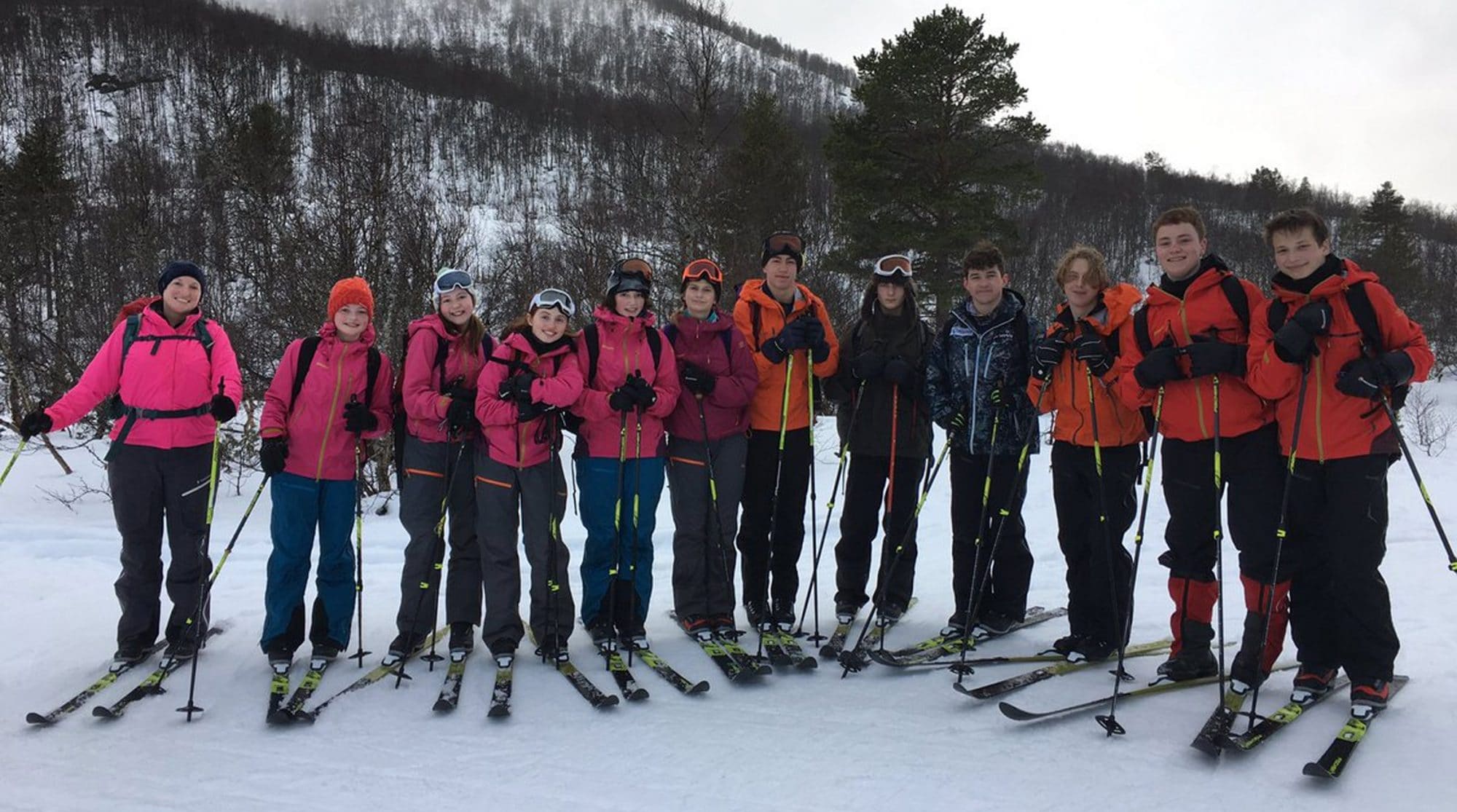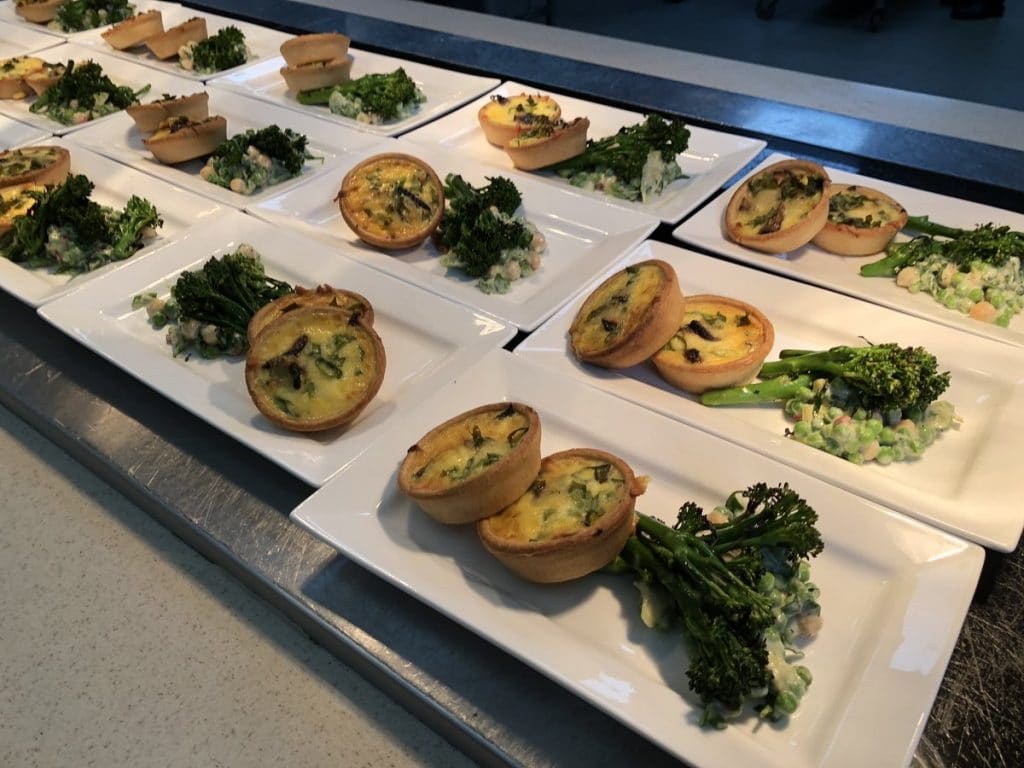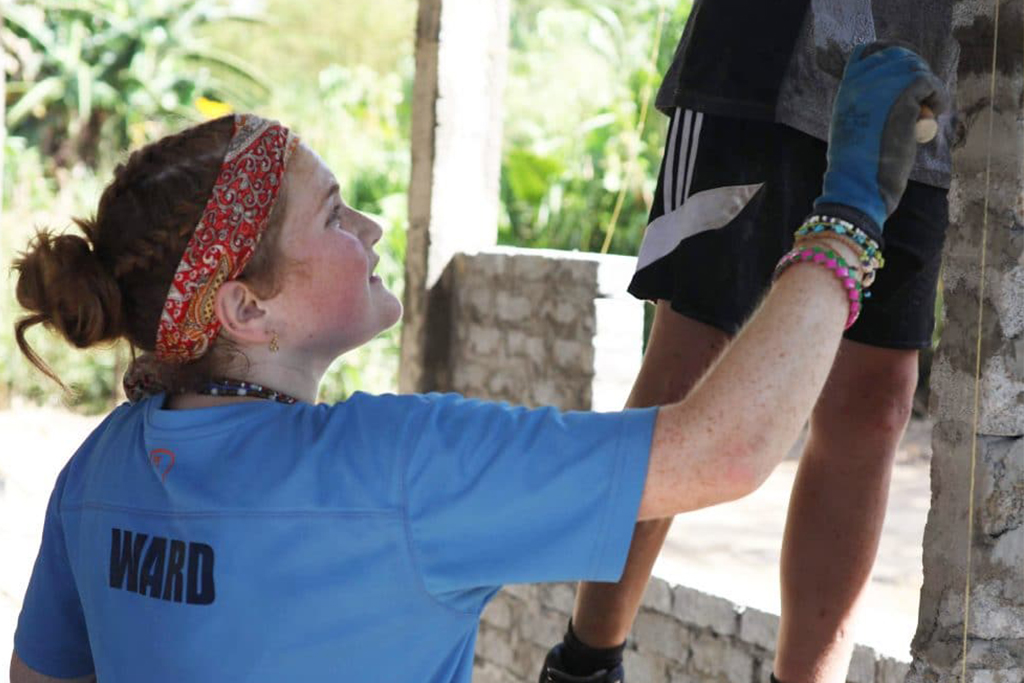
The cross-country skiing tour to Norway was a huge experience for me. I signed up because it gave me the opportunity to visit Norway, somewhere I have always wanted to go, and I would have the chance to ski again, a sport I enjoy and practised a lot when I was younger.
In the weeks leading up to the trip, all the pupils participating would be out on Hill 2 at Bradfield at 7 o’clock for training with Mr. Daniels. We were put through our paces during intense 30-minute workout sessions focussing on the thigh muscles and lower body strength.
I feel I have grown stronger both physically and mentally.
On top of the workouts, we were encouraged to train twice a week by ourselves, which, for me, mainly involved running. I would run the Steeplechase route on one day and then on the other, I ran the Huxham V route or went to the gym.
Once out in Norway, we learnt how to cross country ski, trekking between five and seven miles during the day in training for the three-day ski-tour. Across the expedition on the Arctic wastes, we covered 20 miles from Bykle to Hovden while carrying around 15 pounds of kit on our backs.
When we were not skiing, we were digging snow holes in which to sleep and store survival gear. On the final day it was my groups turn to carry the ‘pulk’, a type of sledge on which we placed our cookers, spare skis and kit. The pulk was attached to a rope which we then tied around ourselves so that we could drag the sledge behind us.
I thoroughly enjoyed the trip and it gave me a huge amount of satisfaction to have completed the expedition. I feel I have grown stronger both physically and mentally.
Antonia (J 15-20)
Being a regular downhill skier for almost my whole life, I have always been fascinated with the skis used by mountain walkers and I have always thought it would be great to give it a go, so when the opportunity arose to join this trip, I jumped at the chance.
Each training day in Norway, we averaged about seven miles of intense cross-country skiing which was very different to the downhill skiing I was used to. Survival training was also key and we took part in avalanche training, learnt how to use a transceiver to find people buried in snow and how to use a probe in the unfortunate event that we could be looking for a body. We also learnt how to construct life-saving emergency shelters in preparation for the dramatic temperature drops in the extreme and unforgiving climate.
By the end of the trip I felt I had achieved something unique of which I am very proud of.
Having completed our training we departed for our three-day expedition. On day one, after arriving at our overnight spot, our initial priority was the long and arduous task of building a snow hole. This three-step process involved piling up snow, firmly compacting it to remove any air and finally, digging it out from the inside to create a cave – a process that took around three hours of physical work.
On the second day, we made our way across a few frozen lakes to a mountain cabin. Thankfully, it had a wood burning stove and just enough space for everyone to sleep on the floor, which felt like luxury, compared to the previous night. On the final day we made our way back to ‘civilisation’, trekking to the local ski resort where we got strange looks from the locals as we all looked completely broken and, having only been skiing for a week, our technique was questionable.

One of the other physical challenges we faced was carrying all of our own personal kit. We had our transceiver wrapped around our bodies and it was extremely important for these to be on at all times so that if we were buried in an avalanche we could be found quickly. Everything else had to be kept in our ‘bergans’ while all the group kit, which included a SAT phone, cookers, spare skis and other emergency kit, was taken in the pulk. Each of the three groups took it in turns to take the pulk for a day and each member of the group pulled it for two or three miles
These experiences, which are not always comfortable or easy, build character and make us better, stronger and more well-rounded people. By the end of the trip I felt I had achieved something unique of which I am very proud of.
Tristan (G 15-20)



